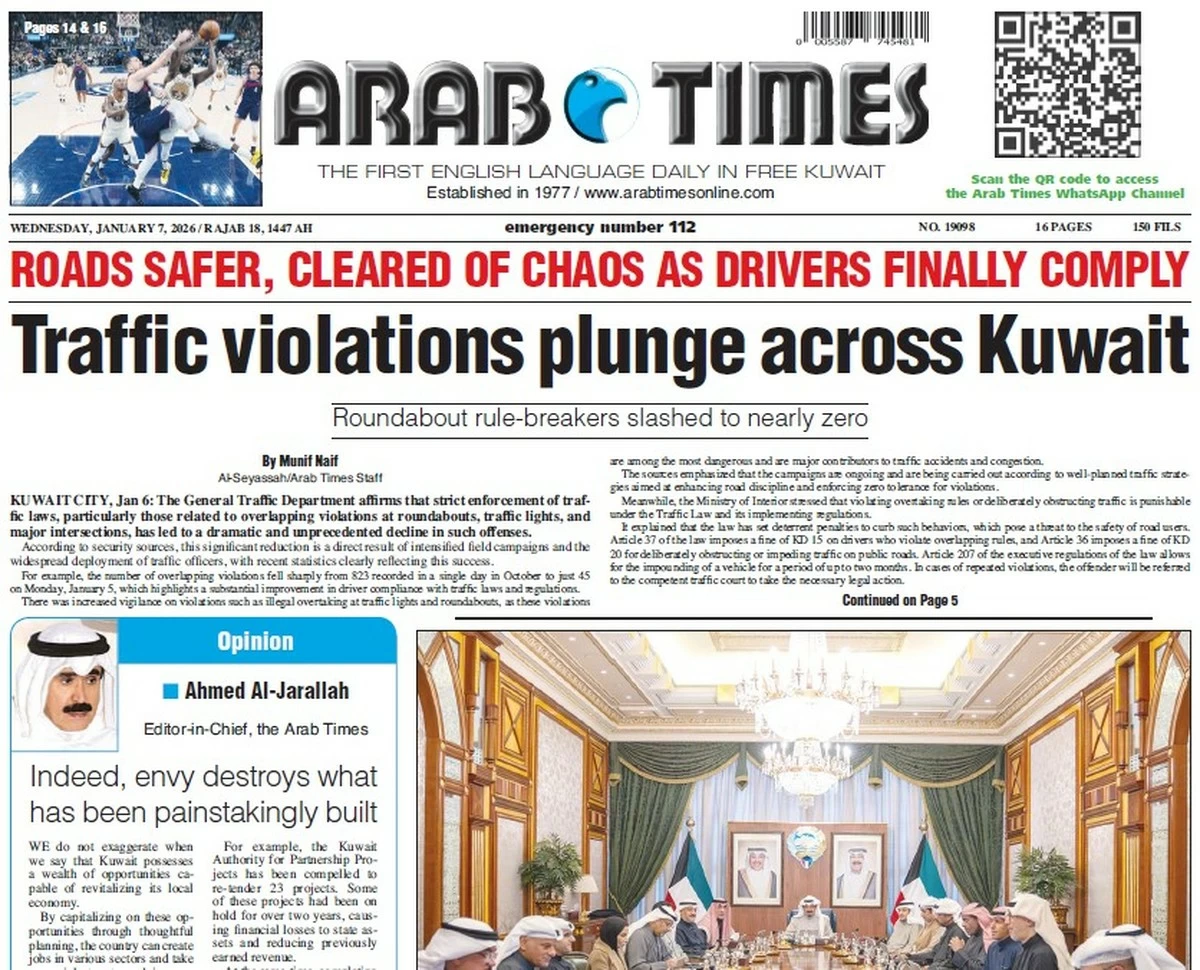11/09/2025
11/09/2025
The discussion was sobering. American military officials and scholars spoke candidly. And I was allowed to draft a summary that might be suitable for publication. When I suggested it to an editor back home, he brushed it aside with a joke, warning that publishing such material would only invite endless trouble. And when I later shared the report with a few senior figures in Kuwait, they were stunned that what they considered tightly guarded secrets were being debated openly in Washington think tanks, which in many ways serve the same role as our own Dewaniyas. When diverse voices are silenced, flawed decisions go unchallenged. Mistakes accumulate until they grow into crises. What we need instead are public forums where officials engage openly, sometimes making mistakes and apologizing, sometimes surprising us with insight. The government cannot thrive behind scripted statements and staged smiles. We are not a nation ruled by militias.
Our sovereign decisions are not dictated from abroad. We are not consumed by sectarian warfare that destroys lives bullet by bullet. Honest words, therefore, are not rebellion but a national duty that protects the state from decline. Would anyone tell a diabetic showing early signs of gangrene that he is perfectly healthy. Do we wait until his leg is amputated before admitting there is a problem. In the same way, telling our governments that everything is fine while decay spreads is not loyalty.
Genuine criticism, even when uncomfortable, is a medicine that can save the body before the illness becomes fatal. To those in executive authority, open the space for voices to speak freely. Restore Kuwait’s tradition of elevated public dialogue. We are already losing wisdom, balance, serious analysis and honest counsel. And when the voices of the wise are silenced, what remains is only the noise of clowns and the applause of cheerleaders.



